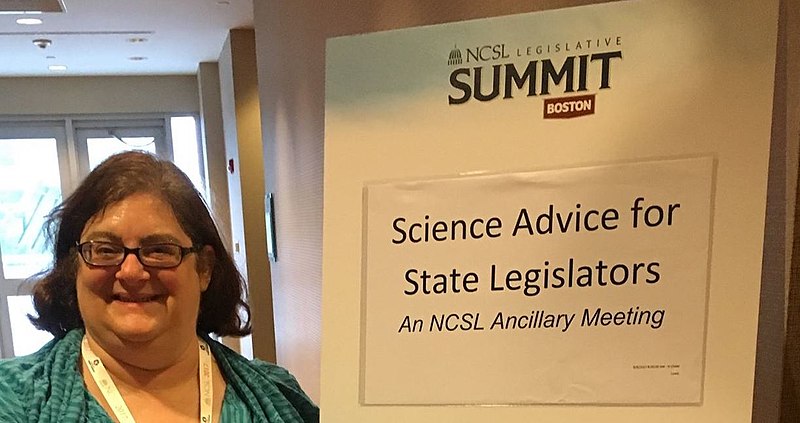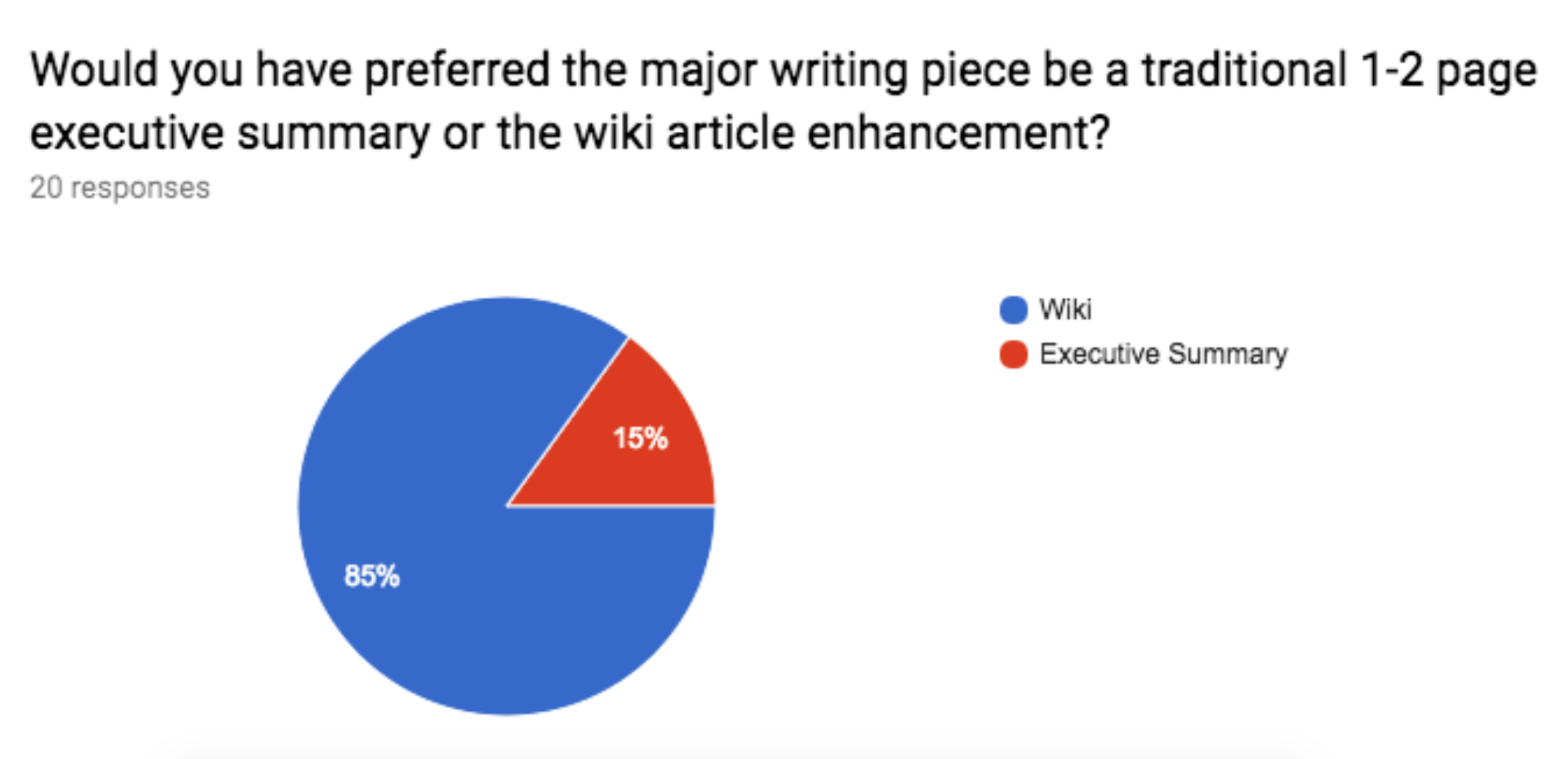Dr. Deborah Stine is a Professor of the Practice in Engineering and Public Policy at Carnegie Mellon University. This last year, she taught with Wikipedia in two of her courses, Environmental Politics and Policy (Spring 2017) and Emerging Energy Policies (Fall 2017). Here, she shares how her students responded to the assignment.

Image: File:Deborah D. Stine, PhD.jpg, Deborah Stine, CC BY-SA 4.0, via Wikimedia Commons.
In February of 2016, I attended the annual meeting of American Association for the Advancement of Science (AAAS), where I saw an interesting session focused on innovative teaching methods. This was where I first encountered Wiki Education and the concept of a Wikipedia assignment.
The idea of having my undergraduate and graduate students in engineering and public policy at Carnegie Mellon University (CMU) make edits to Wikipedia instead of writing a traditional term paper was new to me. This teaching method intrigued me as a way for my students to better understand the opportunities and challenges of Wikipedia in its use as an information resource for policymakers and the public, and as a way for them to learn how to assess the quality of and critique the work of others — a critical part of any policy analysis. I also thought that the Wikipedia assignment could also provide a useful outlet for the hard work they already did on their papers, and provide a way to disseminate that knowledge. At CMU, our students do a great deal of public service projects, and I thought that the Wikipedia assignment would be a good way to make a contribution to public knowledge in environmental and energy policy. I approached Wiki Education staff about incorporating it into my Spring 2017 environmental policy and politics course starting just a month later, and I was off!
The initial experiment went well, and fast-forwarding to this Fall 2017 semester, I decided to incorporate the Wikipedia assignment into my course on emerging energy policies, modifying the class slightly to incorporate student feedback from the Spring environmental policy class. This time, I suggested students work on a few articles together before going it alone, specifically on Australian energy policy, a topic that was in the news at the time. Because the topic was timely, public and policymakers were likely to find an up-to-date Wikipedia article useful, increasing the likelihood that students would recognize the importance of their own work.
Students then worked on individual topics. In the first half of the semester, students focused on their Wikipedia work, developing their background research and literature review for a topic they chose from the site. In the second half of the semester, students practiced the policy analysis techniques they learned in class on policy options they developed based on their Wikipedia work.
In student feedback that I received about the use of Wikipedia for the their topic, public visibility of their work was a big draw. Students liked being able to focus on a topic they found interesting, while also doing productive work for the community. Seeing the final article on Wikipedia and knowing that anyone could read their work was a fulfilling take-away.
Students also enjoyed the collaborative nature of the Wikipedia assignment, including working with peers, their instructor, and Wiki Education staff to push their work live. Learning about Wikipedia’s policies, how to edit, and how to create pages gave students valuable perspective on a resource they had previously taken for granted. They cited Wiki Education’s online training modules and peer review process as essential tools in that learning. Wiki Education’s Dashboard tool, where students completed trainings throughout the course timeline, also provided milestones for students to measure their progress throughout the project. The Wikipedia assignment was new to them, and they liked developing the new skills that it required. These skills include how to write in a different tone and for a mass audience; and how to edit an online, open source site. These are skills they can now add to their resumes.
Students also came away with greater respect for Wikipedia’s legitimacy. In encountering the barriers that a Wikipedia article faces in being published, they came to appreciate the information that does make it onto the site. They found it challenging, however, to decide how to contribute to Wikipedia, since they were not accustomed to Wikipedia’s neutral, encyclopedic writing style. This neutral writing style is important, however, for policy analysis, so it was a good skill for them to learn. Finding sources on energy and environmental policy also proved to be a challenge, since Wikipedia has limitations on the use of government sources. Sometimes, students worked to improve articles that didn’t have clear reference sections, requiring them to track down where the article’s information really came from.

Despite the challenges and unfamiliar territory, the majority of students responded that they preferred the Wikipedia assignment over a traditional executive summary/paper assignment.
I found that Wiki Education’s new sample grading rubric was a welcome addition in structuring the end of my course this term. I look forward to the continual improvements they make to their platforms and guidance. In sum, I will continue to use Wiki Education for my policy analysis for engineers classes, while continuing to tweak it based on student comments.
Interested in teaching with Wikipedia? Visit teach.wikiedu.org or reach out to contact@wikiedu.org to learn more.
